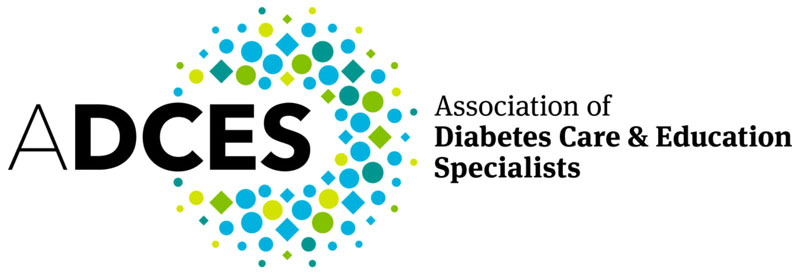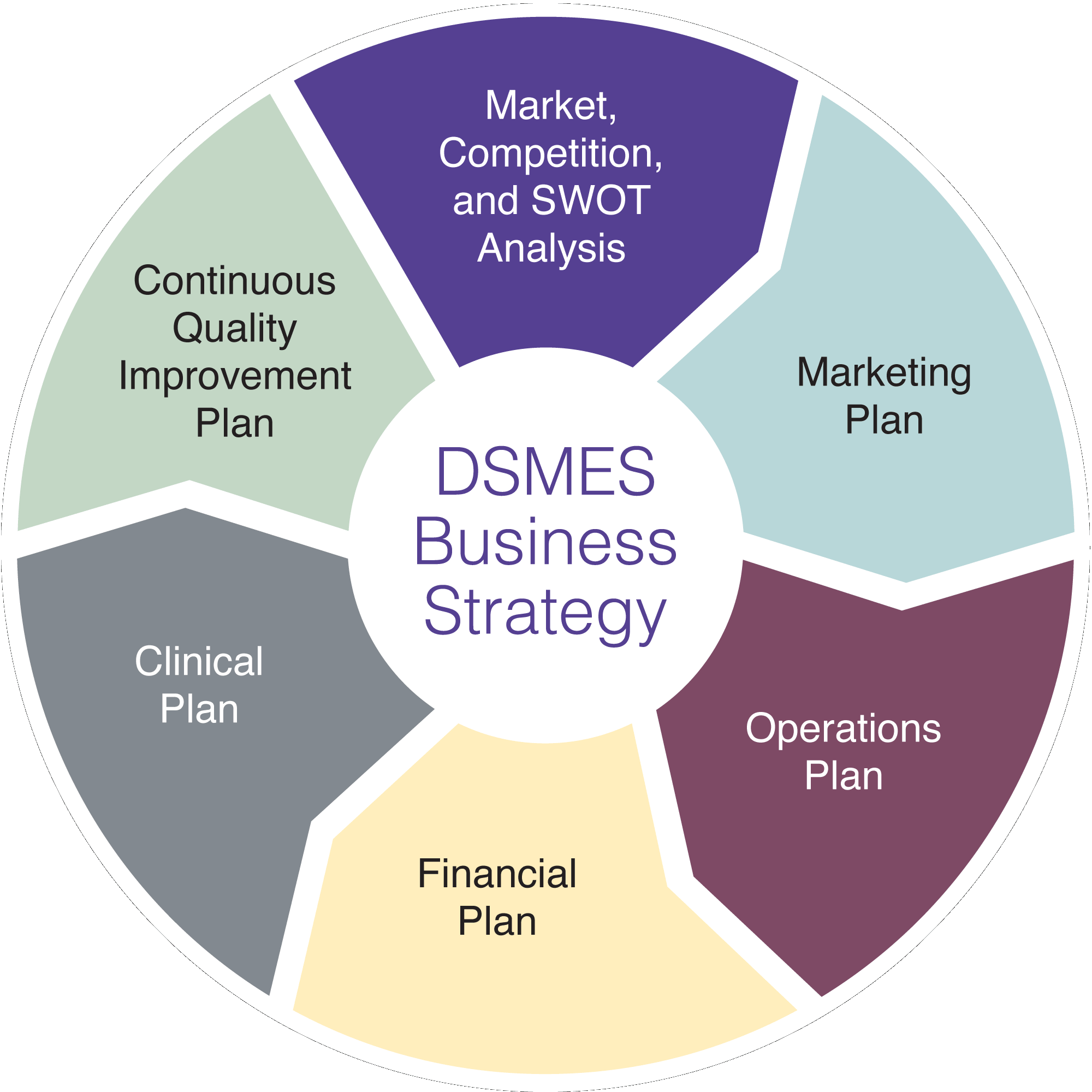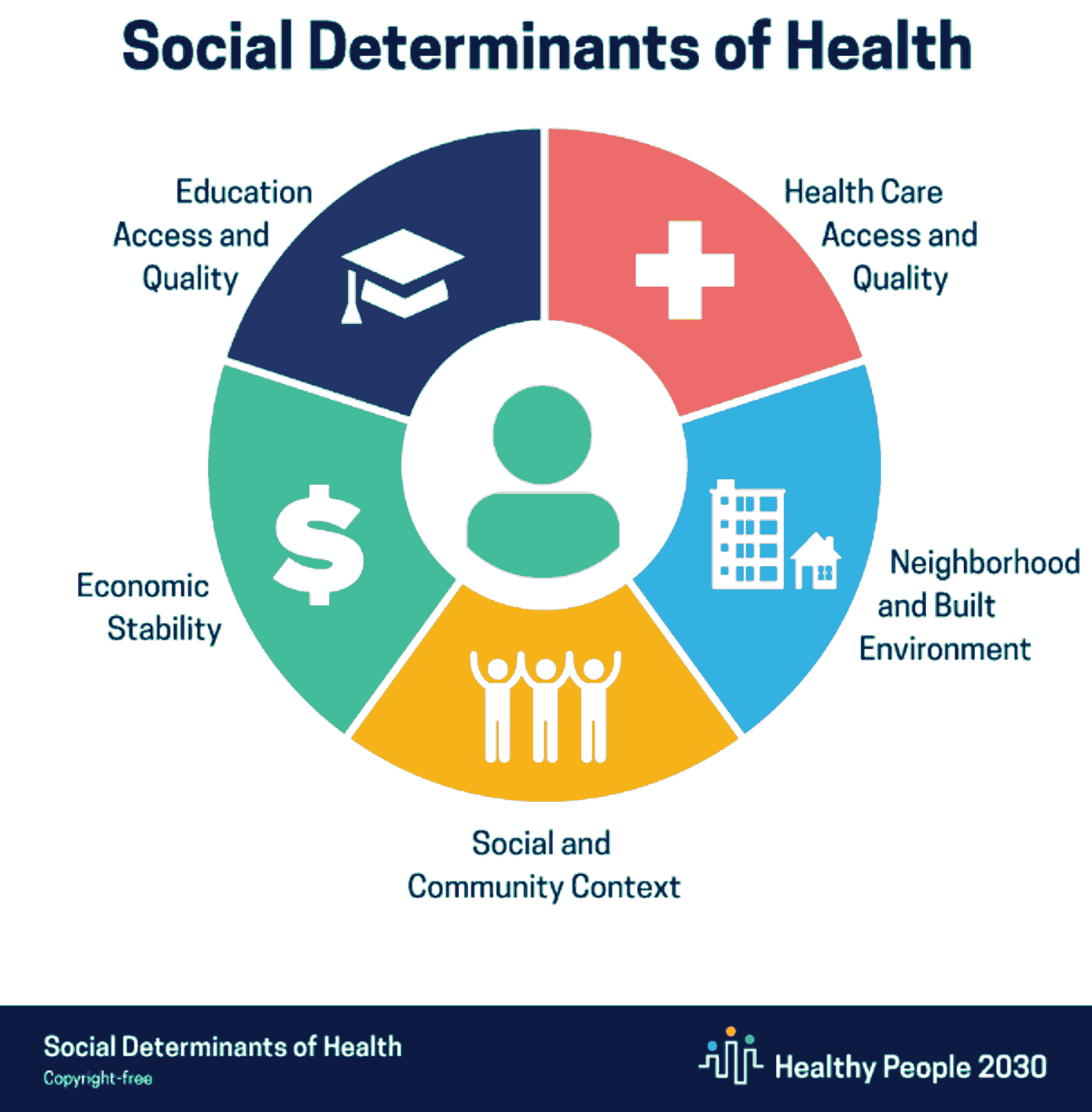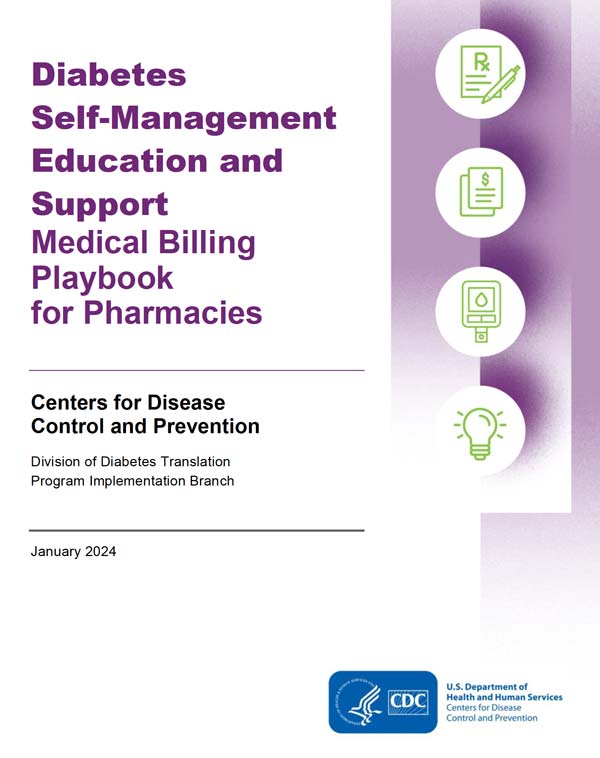Pharmacy DSMES Toolkit

What Is DSMES?
Back to topApproximately half a billion people across the world are living with diabetes, and that number is projected to increase by 25% in 2030 and 51% in 2045.1 Diabetes impacts all social, economic, and ethnic backgrounds and can affect many parts of the body. People with diabetes are at a higher risk of severe complications including blindness, heart disease, kidney disease, and lower-limb amputations. Diabetes is the seventh leading cause of death in North Carolina and the United States. People with diabetes have medical expenses about 2.3 times higher than those without diabetes.2
Diabetes self-management education and support (DSMES) is “the ongoing process of facilitating the knowledge, skills, and ability necessary for diabetes self-care, as well as activities that assist a person in implementing and sustaining the behaviors needed to manage his or her condition on an ongoing basis, beyond or outside of formal self-management training.” 3
DSMES is the gold standard of diabetes care and education, and participants can experience benefits such as improved hemoglobin A1c levels, improved management of blood pressure and cholesterol levels, higher rates of medication adherence, fewer or less severe diabetes-related complications, enhanced self-efficacy, decreased health care costs, and healthier lifestyle behaviors.4
The Pharmacists’ Role on the DSMES Care Team
Back to topPharmacists are key members of the diabetes healthcare team in many settings, but community pharmacists are uniquely positioned to be not only great partners of DSMES services, but great providers as well. Community pharmacists develop strong relationships with their patients because they live in the same neighborhood, are members of the same communities, and serve the whole family. With 9 out of 10 Americans living within 5 miles of a community pharmacy, the pharmacist is often the member of the healthcare team the patient spends the most time with and goes to for trusted healthcare advice.5 There are three main ways a pharmacist can be involved in DSMES services – promote, partner, and provide.
Promote DSMES Services
- Promote your local DSMES service in your pharmacy. Find and connect with a local DSMES service at DiabetesManagementNC.com/Find-a-Class. You can share flyers and information about the service with your patients.
- Share the benefits of DSMES services with your patients and providers.
- Utilize the DiabetesManagementNC Social Media Marketing Toolkit to promote awareness of DSMES service
Partner with DSMES Services
- Guest speak at a DSMES services in your community
- Provide medication updates to diabetes care and education specialists and/or participants
- Partner for screening or promotion events
- Provide medication consolidation consultations for participants
Provide DSMES Services
- Seek recognition from ADA or accreditation from ADCES to provide DSMES services in your community
- Consider getting expansion/satellite sites to deliver education in different physical locations in the community
- Consider implementing telehealth/virtual options for DSMES delivery
- DiabetesSmart can help support your DSMES service
National Standards of DSMES
Back to topIn order to be a recognized or accredited provider of and bill for DSMES services, an organization must meet the National Standards of DSMES. The National Standards provide guidance and evidence-based best practices for all DSMES services.
Standard 1: Support for DSMES Services
The DSMES team will seek leadership support for implementation and sustainability of DSMES services. The sponsor organization will recognize and support quality DSMES services as an integral component of diabetes care. Sponsor organizations will provide guidance and support for DSMES services to facilitate alignment with organizational resources and the needs of the community being served.
American Diabetes Association Sample Forms, Templates, and Resources
Annual Service Support Review/Revision Form
Association of Diabetes Care and Education Specialists Sample Forms, Templates, and Resources
Letter of Support Template
Standard 2: Population and Service Assessment
The DSMES services will evaluate their chosen target population to determine, develop, and enhance the resources, design, and delivery methods that align with the target populations’ needs and preferences.
American Diabetes Association Sample Forms, Templates, and Resources
Annual Population Assessment Review/Revision Form
Association of Diabetes Care and Education Specialists Sample Forms, Templates, and Resources
Population Served Template
Standard 3: DSMES Team
All members of a DSMES team will uphold the National Standards and implement collaborative DSMES services, including evidence-based service design, delivery, evaluation, and continuous quality improvement. At least one team member will be identified as the DSMES quality coordinator and will oversee effective
American Diabetes Association Sample Forms, Templates, and Resources
Quality Coordinator Position Description Template
Association of Diabetes Care and Education Specialists Sample Forms, Templates, and Resources
Job Description Template
Standard 4: Delivery and Design of DSMES Services
DSMES services will utilize a curriculum to guide evidence-based content and delivery; to ensure consistency of teaching concepts, methods, and strategies within the team; and to serve as a resource for the team. DSMES teams will have knowledge of and be responsive to emerging evidence, advances in education strategies, pharmacotherapeutics, technology-enabled treatment, local and online peer support, psychosocial resources, and delivery strategies relevant to the population they serve.
American Diabetes Association Sample Forms, Templates, and Resources
Design and Delivery Annual Review/Revision Form
Out of Scope of Practice Policy Template
Association of Diabetes Care and Education Specialists Sample Forms, Templates, and Resources
Delivery and Design of DSMES Services Template
Delivery and Design of DSMES Service Example
Standard 5: Person-Centered DSMES
Person-centered DSMES is a recurring process over the life span for people with diabetes. Each person’s DSMES plan will be unique and based on the person’s concerns, needs, and priorities collaboratively determined as part of a DSMES assessment. The DSMES team will monitor and communicate the outcomes of the DSMES services to the diabetes care team and/or referring physician/other qualified health care professional.
American Diabetes Association Sample Forms, Templates, and Resources
One Page DSMES Assessment
Patient Chart Review Form
Association of Diabetes Care and Education Specialists Sample Forms, Templates, and Resources
DSMES Assessment Template
Patient Chart Template
Standard 6: Measuring and Demonstrating Outcomes of DSMES Services
DSMES services will have ongoing continuous quality improvement (CQI) strategies in place that measure the impact of the DSMES services. Systematic evaluation of process and outcome data will be conducted to identify areas for improvement and to guide services optimization and/or redesign.6
American Diabetes Association Sample Forms, Templates, and Resources
Continuous Quality Improvement Worksheet
Association of Diabetes Care and Education Specialists Sample Forms, Templates, and Resources
PDSA Template
The National Standards are the same for all DSMES sites, including pharmacies. The American Diabetes Association and the Association for Diabetes Care and Education Specialists have their own interpretative guidance for each of the Standards.
Recognition or Accreditation of DSMES Services
Back to top

Pharmacies can either earn recognition of DSMES through the Education Recognition Program (ERP) of the American Diabetes Association (ADA) or accreditation through the Diabetes Education Accreditation Program (DEAP) of the Association of Diabetes Care and Education Specialists (ADCES). The U.S. Centers for Medicare and Medicaid Services (CMS) will only reimburse DSMES services delivered by organizations recognized by ADA or accredited by ADCES. Each certifying body has a formal application process, requires supporting documentation, fees, annual reports and renewals, and has a process for auditing programs.7
Resources/Links
Comparison of ADA recognition and ADCES accreditation
American Diabetes Association Education Recognition Program (ERP) Resources
ADA ERP Homepage
2022 National Standards for DSMES Interpretive Guidance and Checklist
Initial Application
New Service Application Checklist
Support Documentation Checklist
Maintaining Recognition
Annual Status Report FAQ
Annual Status Report Template
Virtual Audit Toolkit
Audit Documentation Checklist
Association of Diabetes Care and Education Specialist Diabetes Education Accreditation Program (DEAP) Resources
ADCES DEAP Homepage
2022 National Standards for DSMES Interpretive Guidance
Initial Application
Initial Application Instructions
Initial Application Supporting Document Checklist
Maintaining Accreditation
Annual Status Report Instructions
DEAP Audit Toolkit
The Business Side of DSMES
Back to top
Program Design
Back to topAs DSMES has evolved, there are more options for education delivery to better meet the needs of the participants. DSMES has moved to a person-centered approach with a focus on problem solving and self-management.
Accredited and recognized DSMES services must have a registered dietitian, registered nurse, or a pharmacist associated with the program. Other members of the diabetes care and education team, referred to as Diabetes Community Care Coordinators (DCCC), can include community health workers, pharmacy technicians, exercise physiologists, social workers, medical assistants, etc. They must be qualified and provide diabetes education within their scope of practice and training.
Chronic Care Management Toolkit
Implementing a Diabetes Management Program in a Community Pharmacy: Part 2
Curriculums and Educational Resources
Evidence-based curriculums and free or low-cost teaching resources already exist to support DSMES service. DSMES curriculum topics include diabetes pathophysiology, healthy eating, being active, taking medications, monitoring glucose, acute complications, chronic complications, lifestyle and healthy coping, and diabetes distress and support.
ADA Patient Education Library
ADCES Diabetes Care and Education Curriculum
ADCES Tip Sheet Resources
Physical Space Allocation
Pharmacies make an ideal location for DSMES services because they tend to be more conveniently located for participants and typically have a greater connection to the community. However, pharmacies are not always set up with the physical space allocation for group classes that are typical of DSMES services. Ample space must be allowed for participants and their support person, the diabetes care and education specialist(s), and instructional materials. This may require pharmacy based DSMES services to consider utilizing offsite satellite locations to deliver the program.
Non-Traditional Settings
Pharmacists may want to consider utilizing offsite locations to deliver the program to provide more space for group classes, to help lessen transportation and other social barriers experienced by participants, to utilize community partnerships, and to make the education more accessible by bringing it to the participants. Both ADA and ADCES allow for additional locations to serve as an extended copy of the recognition or accredited diabetes education program at no additional cost and are called expansion sites (ADA) or community sites (ADCES). Any location can serve as an expansion or community site and commonly include libraries, senior centers, community centers, physician offices, grocery stores, additional pharmacy locations, etc. These additional sites must offer the same program with minor alterations for specific target population needs, use the same educators, and must bill through the multi- or main site.
ADA Expansion Site Information
ADCES DEAP Community Sites Information
Class Scheduling
There is no perfect time for holding a DSMES class, but you must consider the population you are serving and their ability to attend when scheduling your classes. When thinking about your DSMES service, it is important to consider who this program does not work for as well as who it does. Adjustments may need to be made in scheduling to accommodate more participants. Other scheduling tips for a successful and sustainable DSMES service:
- Hold each class at the same time for a new cohort.
- Consider social barriers that may prohibit members of your community from attending your class and ways you might help participants overcome those barriers.
- Consider offering future classes on different days and at different times to meet the needs of more participants.
- Collect feedback from participants about what worked well as far as scheduling (i.e. day of the week, time, length of class, frequency of classes)
- Factor in a mixture of marketing and promotion such as social media, print material, and storytelling.
- Appointment-based model helps you properly allocate staff and other necessary resources.
- Keep an accurate calendar and base staffing appropriately with a backup plan for the calendar in case of last minute changes.
Consistency is key. It will take time to fine tune the class into what you want, but until then focus on delivering quality education and helping your participants get fantastic results that they (and you) can share with their provider.
Workflows
An established scheduling system (or workflow) ensures recurring and sustainable DSMES services. Engaged administrative and trained support personnel, including pharmacy students and technicians, work well in scheduling participants. This process starts with an easy-to-use referral form that meets all the Centers for Medicare and Medicaid (CMS) requirements. There is no such thing as a stand-up diabetes education session at the counseling window or prescription counter. An appointment-based model helps you properly allocate staff and other resources necessary to deliver the program with excellence.
CDC DSMES Toolkit: Referral Process
ADA Sample Referral Form
ADCES Sample Referral Form
Education Documentation
Documentation of the DSMES cycle is critical to obtaining and maintaining ADA recognition and/or ADCES accreditation, as well as Medicare reimbursement. Paper or electronic charts can be utilized for DSMES documentation. Any electronic health record platform can be used as long as each aspect of the education cycle is documented. Chronicle Diabetes is a Health Insurance Portability and Accountability Act (HIPAA) compliant diabetes education documentation platform that is provided free to ADA recognized programs and for a nominal subscription fee to non-ADA recognized programs to document their DSMES services. All components of the DSMES cycle must be included to be considered a complete chart for use in the recognition/accreditation process and ADA/ADCES or Medicare audits.
ADA Comprehensive DSMES Cycle
ADA Chronicle Diabetes Documentation Platform
ADCES Chart Review Form
Virtual Delivery Options
Virtual or telehealth delivery of DSMES services can be an effective way to reach more participants with greater efficiency and in less time and/or help participants overcome social barriers to attending DSMES services. During the COVID-19 public health emergency, CMS released updated guidance and increased flexibilities to allow recognized and accredited DSMES services to provide and bill for DSMES service. Aspects of these flexibilities may discontinue with the end of the public health emergency.
Education and services delivered via telehealth must be delivered at the same quality and standard of care as services delivered in-person. Telehealth DSMES services must be delivered via real-time audio and video capabilities with both the provider and participants requiring access to supporting technology and internet. There are many telehealth platform options to help facilitate virtual delivery of DSMES at HIPAA-complain standards.
CDC DSMES Toolkit: Patient Success for DSMES Through Telehealth
ADCES Telehealth Guidance and Resources
Telehealth and DSMT: Answer to Commonly Asked Questions
Social Determinants of Health
Social determinants of health (SDOH) are the conditions where a person is born, lives, learns, works, plays, worships, and ages that affect their health and quality of life. SDOH are grouped into 5 main domains: economic stability, education access and quality, health care access and quality, neighborhood and built environment, and social and community context.9 It is important to be mindful that these factors can affect your participants ability to not only attend DSMES classes, but also in their day-to-day self-management of diabetes and other chronic conditions. Consider ways you can adjust your DSMES service to help participants overcome these barriers including off-site education delivery at non-traditional expansion sites, virtual delivery, sliding fee scales, etc.
Social Determinants of Health Resource Finder

Billing for DSMES Services
Back to topThe ability to be reimbursed for DSMES services is crucial to the sustainability of a program. DSMES providers must be accredited by the Association for Diabetes Care and Education Specialists (ADCES) or recognized by the American Diabetes Association (ADA) in order to be eligible for reimbursement. Pharmacy providers must be enrolled as Medicare Part B providers and bill for at least one service other than DSMT.10
Note: When discussing billing, DSMT – diabetes self-management training – and DSMES are often used interchangeably. The Centers for Medicare and Medicaid Services (CMS) requires the use of DSMT in reimbursement documentation.
Initial DSMT is a “once-in-a-lifetime” Medicare benefit. Once the person with diabetes begins receiving DSMES services, the 10 hours must be used within 12 consecutive months from the first day of service. Medicare beneficiaries are also eligible for two hours of post-program education annually after the initial comprehensive education.10
CMS guidelines state that of the 10 hours of initial DSMES, one is payable individually, but the other nine must be furnished in a group setting. There are exceptions that would allow all 10 hours to be furnished individually including there is no group class available within the next two months or longer from the date on the referral, the provider indicates on the referral that the participant has a barrier to group learning, or the provider has indicated on the referral that the participant needs additional insulin training. The two hours of post-program education can be furnished individually or in a group setting, but a new referral is still required.10
Codes
Both the 10 initial hours of DSMT and 2 hours of follow-up education are to be furnished in increments of 30 minutes. Use procedure code G0108 for individual sessions and G0109 for group sessions of two or more people.
Steps for Billing
Currently pharmacists cannot bill individually or directly bill as providers of DSMES services, but accredited or recognized pharmacies can bill for DSMES services under the pharmacy’s NPI number assigned to the DSMES program.
After achieving DSMES accreditation or recognition, you will first need to contact your Medicare Administrative Contractor (MAC) to determine what type of provider you are. If you are set up only as a mass immunizer/roster biller, you will need to complete a new CMS855-B form.
Billing Medicare for DSMT

Need to have DSMES certificate of accreditation/recognition to update your information with Medicare or apply for pharmacy PTAN.

Using the CMS 855-B form, obtain a PTAN as a pharmacy provider type. If you are set up as a mass immunizer, you will need to apply for a pharmacy PTAN. If already set up as a pharmacy, you may simply update your information with an 855-B form and accreditation/recognition certificate.

Must have a billing provider who can submit electronic claims to Medicare on your behalf. There are several that work with existing pharmacy systems as well as standalone options.

Using an electronic billing software, submit claims to Medicare for DSMT when providing it. Use G0108 for individual sessions and G0109 for group sessions at 1 unit per 30 minutes.
Resources/Links
Implementing a Diabetes Management Program in a Community Pharmacy: Part 3
CDC DSMES Toolkit: Medicare Reimbursement Guidelines for DSMT
Guide to Medicare Diabetes Reimbursement
References
10. https://www.cdc.gov/diabetes-toolkit/php/reimbursement/medicare-reimbursement-guidelines.html
DiabetesSmart
Back to topNorth Carolina was the first to state to develop an “umbrella” program where the Division of Public Health serves as the sponsoring agency, managing all the recognition requirements, while local health agencies, including pharmacies, are “multi-sites” for the program, providing diabetes self-management education and support (DSMES) services to their communities. Organizations in the DiabetesSmart program receive support of a statewide umbrella program; technical assistance and support for billing, marketing, curriculum, program development and quality improvement; assistance with obtaining and maintain ADA recognition; monthly communication and training; and access to the DiabetesSmart Portal. For more information or to learn more about joining the program, visit https://diabetesmanagementnc.com/diabetessmart/ or contact DiabetesSmart staff at DiabetesSmart@dhhs.nc.gov.



